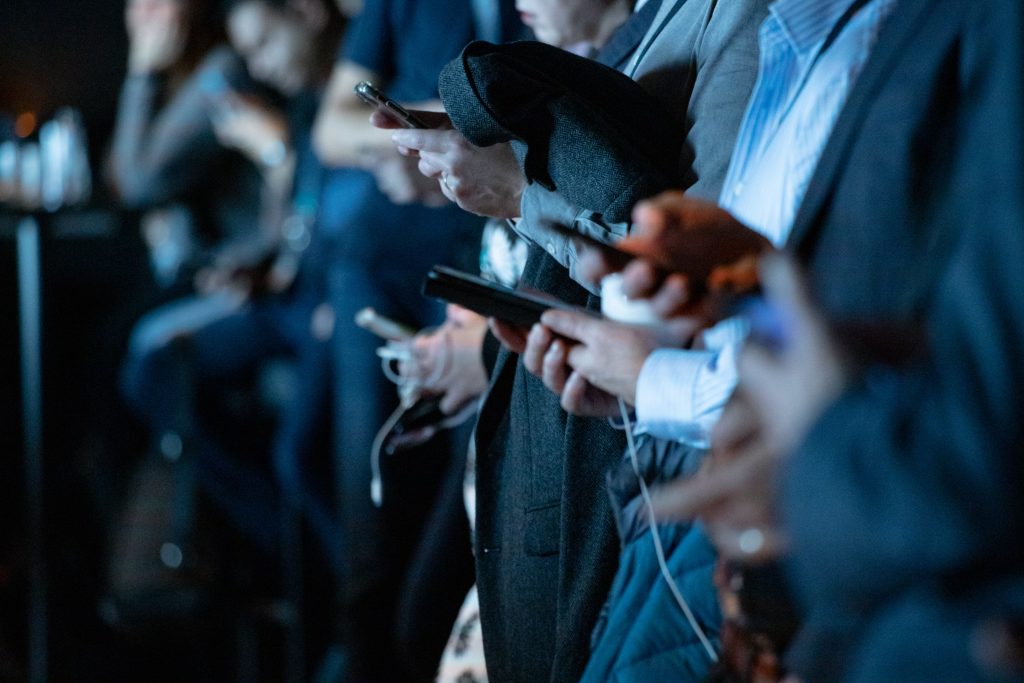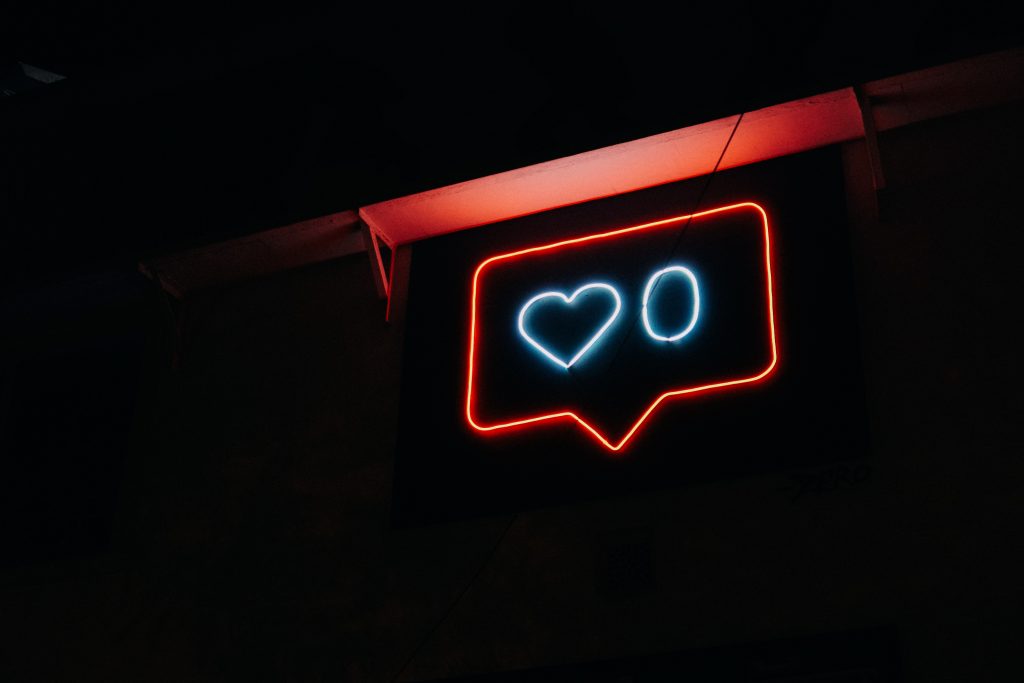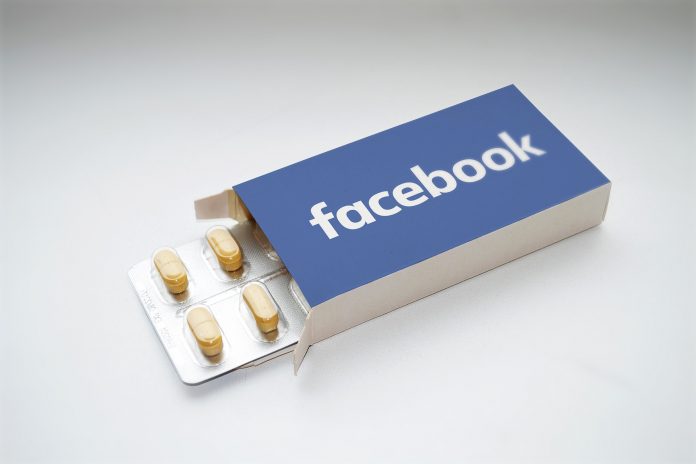If you find yourself feeling overwhelmed by the number of emails, messages and news alerts vying for your attention, it could be time to take a digital detox.
For the vast majority of us, our digital lives are busier than ever before, with apps like Facebook, Instagram and Gmail designed specifically upon the latest neuroscience, to stimulate the same parts of our brains as other addictions and compulsive behaviours. And just like a compulsive addiction to cigarettes, alcohol, or sugar might require a detox to intervene and reset us to more healthy habits, so a digital detox can help us detach from our devices and notifications long enough to remind us how much calmer and more fulfilling life can feel when we’re not constantly reaching for our next digital fix.
But what exactly is a Digital Detox? Why should we carry out a digital detox? And how do we go about it?

In this fast-paced world, we’re so used to relying on technology that checking notifications on our smartphones has become a reflex action. Many of us find ourselves opening social media by default, before even considering if we want to. We neglect to enjoy and be in the present moment, sitting through family gatherings glued to our screens, frantically checking email the moment we wake up, and reading apocalyptic news on our lunch breaks.
The ongoing pandemic has only increased our digital dependency. Work has become remote, so many of us – at least the lucky ones – work from home. We spend a lot of time isolated, contacting our parents and buddies solely through Skype, Zoom or Teams, our email inboxes and instant messages overflow with messages, and our feeds bombard us with news updates 24/7.
But humans aren’t built to process this much information all at once, so most of us are left feeling overwhelmed, anxious, burned out, or even depressed.
That’s why a digital detox this winter might be more necessary than ever before.
What is a digital detox?
Since our brains are not designed for data overload, there’s increasing interest in digital detoxes.
Wikipedia defines a digital detox as “a period of time when a person voluntarily refrains from using digital devices such as smartphones, computers, and social media platforms.”
You can choose to try a light detox, meaning you’ll only be abstaining from your gadgets for three days – or even a single day – definitely achievable over the festive break. Or you can commit more seriously and try going for weeks or months “living in the real world”.
The idea behind taking a digital detox is to try being more mindful, more present, and more involved in our actual lives. When was the last time you paused to smell the roses, enjoy some quiet without any interruptions, sat with your own thoughts, or enjoyed the simple pleasure of ordinary tasks such as watering plants or preparing a meal, without checking notifications or news articles?
Over 80% of us use some form of social media and the average user spends 144 minutes scrolling and checking out what others are up to. That’s more than two hours a day.
Yet at the same time, we bemoan that we’re too busy for new hobbies, exercise, spending quality time with our friends, or taking care of ourselves in other ways.
If you find yourself often distracted, anxious, unmotivated, or like you never have enough time, a digital detox can help to reset your mind, change your perspective, and boost your mood.
Even going a single day without phones or laptops can have an incredible impact.
A short-term cleanse like this, also known as a ‘dopamine detox’, has the aim to reset your mind and ween it from its craving of ‘rewards’ from external stimuli – interruptions.
Why try a digital detox?
This is the first time in human history that people have no time to observe their thoughts, leading to a neverending rise in mental health issues.
The issue didn’t solely arise with the introduction of Facebook, Twitter and Instagram, though. Remember how chill everyone used to be during the MySpace era?
The real problem started when social media companies started designing algorithms whose sole purpose was to increase users’ minutes of engagement. So began the era of newsfeeds full of content selected by sophisticated algorithms designed to keep our attention and have us endlessly scrolling, meanwhile every one of our interactions is being used as a new data point to better target future content to us, increasing our dwell time, and propensity to turn us into customers for paying advertisers.
Attention engineering is an actual job – using psychological techniques like creating dopamine feedback loops and feeding primal emotions to keep user attention for as long as possible in order to maximise advertising revenue and information collection.
Cal Newport, computer scientist and author of ‘Digital Minimalist: Choosing a Focused Life in a Noisy World’, who’s never had a social media account, suggests that we should quit social media altogether, because by using social media we’re basically selling private information in exchange for cheap rewards, dopamine boosts and some form of self-validation, while attention engineers work on making social networks more and more addictive.
Silicon Valley engineers even studied research that came from Las Vegas casinos in order to figure out the optimal reinforcement level to keep us engaged and coming back for more.
It seems quite logical that we wouldn’t choose to exchange our valuable time, focus and peace for a bit of entertainment. However, unfortunately just knowing the hazards of social media isn’t enough to actually escape the addiction, and many of us need to use social media for work, making it harder to quit Facebook and Instagram completely.
Still, we can reap some benefits from taking a digital detox for a week or a month and come out on the other side with a fresh perspective and new ideas on how to find more balance and bring more stillness, mindfulness and focus.
20 reasons to do a digital detox
- A digital detox can help us grow awareness on the scale of our addiction.
We may not even notice how much time we spend scrolling and checking meaningless notifications. Doing a digital detox for a week or two might help us assess how grave the situation is.
- Forgoing our phone and laptop for a week can be hugely beneficial to our mental health.
Heavy internet use has been shown to cause a 5x increased likelihood for developing depression, compared to more moderate use. - Reconnect to the world and people around us: Although during the pandemic we’re probably not surrounded by many, we need presence and human closeness during these trying times.
- Keep our data private: There have been countless controversies relating to the misuse of our data. From Facebook leaking users’ data, apps selling info to advertisers and Internet tracking companies, and research companies scraping info from social media in order to sell the compiled data to influence election outcomes.
- Reclaim our focus: Quitting social media – even for a while – can help improve our concentration that has been greatly impaired due to constant interruptions from notifications and newsfeed refreshes.
- Use time more wisely: Did you know that if you practiced a new language for just 30 minutes a day, you could be fluent within a year? With an average 144 minutes being spent on social media per day, imagine what we could do if we used that time to practice hobbies, learn new skills, talk to friends and family, or simply read.
- Better sleep: Countless studies have confirmed that using social media damages our quality of sleep and even causes insomnia.
- Break the cycle: If checking social media has become an automatic response, an unconscious reflex, just breaking the habit can help us notice how much time we’re spending scrolling and how it affects our quality of life.
- Form better habits: Going without social media during a digital detox might help us form better technology habits in the long run. For example, designating a few hours a day when we turn off our phone, or introducing ‘offline Sundays’.
- Break from the consumerist cycle: Since our data is being sold to advertisers, it’s easy to become a marketing target. With masterfully designed algorithms, we’re constantly being sold things we don’t need and being dragged into the consumerist loop.
- Reconnect with yourself: A break from the digital world can help us get in touch with our own thoughts, needs and wishes, give us more time to observe our habits, meditate and simply reflect.
- Escape the panic and paranoia: Though Covid19 is real and is taking lives all over the world, constantly reading about it only makes us feel more anxious. Do we really need that in our lives?
- Boost health: Did you notice that using your phone and laptop too much has left you with neck and back pain, or headaches? Cutting time spent on technology will greatly improve our well-being.
- Read more: With the rise in time spent on the internet, we’re reducing our time for good old books (yes, the ones made of paper, that smell of childhood and escapism). Cutting our screen time might lure us back into the library and have us expand our horizons through our favourite novels or non-fiction.
- Feel happier: Simply turning off social media for a while will help us be more present, more observant and in tune with our surroundings. People who quit digital life for a while have reported elevated mood levels and increased happiness.
- Cut stress levels: Saying adios to social media, even for a short while, will cut cortisol levels and de-stress us, helping us find more of those zen moments.
- Practice discipline: Even if you don’t plan to shut down your Facebook and Instagram completely, going without them for a weekend or month can help us develop discipline and greater awareness of our usage.
- Increase productivity: With hours freed within our day, we’ll be able to be more productive, have fewer outlets for procrastination, finish our workload in less time and overall, boost time efficiency.
- We’ll have more time to engage in physical activity, too, feeling more alert, shedding extra weight and feeling overall much healthier.
- Learn something new about yourself: With all these additional hours available to spend reflecting, exercising, meditating and tuning in to ourselves, we’ll come out of this experiment with far greater self-knowledge regarding what we really need in our lives to make us happy, healthy and fulfilled.
How to digital detox
In order to execute a digital detox well, you should first prepare.
- Tell your friends and family about your plans to shut off social media, laptop and phone. Find time when you won’t have to be connected for work reasons – the holidays may be the perfect opportunity.
- Decide on how long you will do it for, and be clear in your intentions for why you’re doing it in the first place. Journal throughout the experience in order to come to new conclusions and be even more in-tune with your thoughts.
- After days of a digital detox, try to instill new digital habits, healthier ones, like limiting screen time for work and leisure, or installing apps that track and interrupt poorly spent time online.
- Meditate throughout the experience and share your positive experience with loved ones so they might take inspiration to log-off themselves.





